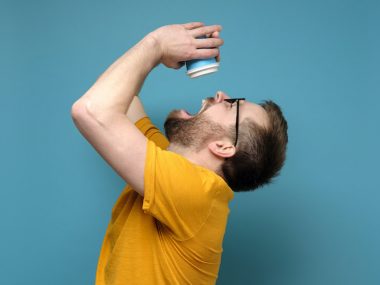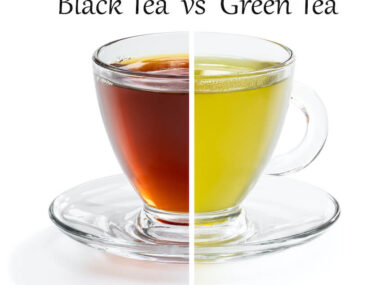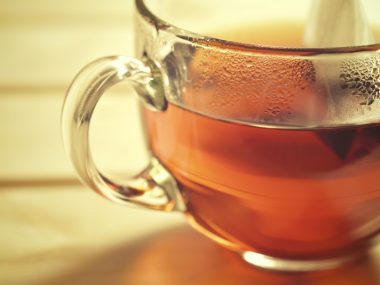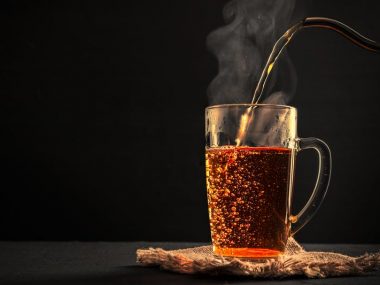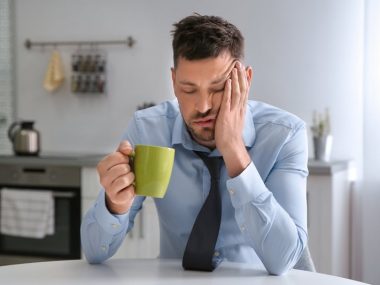A universal ailment plagues humans at one time or another and rears its ugly head when we least expect it. If you suffer from headaches, this is a bit of information you don’t want to miss! Tea for headaches — does it work? Let’s dig in!
Table of Contents
What Is The Best Drink For Headache?
Did you know that the go-to form of relief when a headache strikes is analgesics such as aspirin, NSAIDs, etc.? Some may find that tea helps that nagging pain we all dread in our heads. But before we lay claim on any drink being best for helping headaches, we are going to do a little digging to find out why the drink helps.
Most of us have had the unpleasant experience of a headache, so we’re fairly sure you are well acquainted with what a headache is. Headaches span the spectrum in pain grades, with migraines being the most painful. A headache doesn’t care how old you are, your race, what country you live in, your gender, or how healthy you are. So, why do we get them?
What Is A Headache?
The common headache is what’s considered a “neurological” event. A published study entitled “Types of headache and those remedies in traditional persian medicine” reports that a headache is ranked as number five in the leading health complaints of patients in the U.S. A whopping 96% of the world’s population has experienced a headache (more females than males.)
The study goes on to indicate this ailment isn’t something new but has been prevalent most likely since the birth of mankind. Evidence of treatments for headaches was first unearthed with skulls dating back 9,000 years ago, which had holes drilled from a treatment known as “trepanation.”
References (by Ebers Papyrus) to head-related conditions were discovered, which dated back to 1550 B.C. A very crude form of treatment in 129-199 A.D. was used, which included placing a torpedo fish (also known as an electric ray that emitted electrical currents) on a patient’s forehead.
What Causes Headaches?
The Harvard Health Medical School lists numerous causes that bring on a headache. Typically, the pain we experience from a headache is because the arteries/vessels in our brain become dilated (vasodilation.) Other things (listed below) can also cause headaches.
- Allergies
- Aneurysm
- Caffeine withdrawal
- Cervicogenic (conditions from pinched cervical nerves in the neck)
- Depression
- Eyestrain
- Exertion
- Fasting
- Fever
- Inflammation of temporal arteries
- Hangover
- Infection
- Hunger
- High blood pressure
- Jaw disorders
- Lack of sleep/fatigue
- Lumbar puncture (spinal tap)
- Medication/drug withdrawal
- Menses
- Migraines
- Post-traumatic event
- Sinus
- Stress
- Tension
- Trigeminal neuralgia
- Triggers: climate, food, drinks, smells, lights, medications, estrogen levels, alcohol, additives to food/drink, aspartame
- Tumors
Depending on the amount of pain a person is experiencing from a headache, they may seek out medical intervention for relief. Migraine sufferers may be prescribed medication to take while others take a few aspirins. Some are forced to make lifestyle changes to help reduce headaches.
Research has been done on how caffeine (in tea) helps to provide relief from headaches. Let’s take a look at how caffeine intervenes when it comes to a pounding head.
Caffeine and Headaches
Researchers conducted a study (The Ambiguous Role of Caffeine in Migraine Headache: From Trigger to Treatment) that took an in-depth look at caffeine and migraine headaches. What they present in their published article is rather eye-opening.
The study mentions that caffeine causes the brain to perk up (arousal, concentration, vigilant.) This feeling is the main reason we seek out caffeine in the mornings. This jump-start is a result of the rapid absorption of caffeine into our brain.
So, how does this relate to a headache? Well, our intake of caffeine causes a decrease in the production of nitric oxide. Nitric oxide is what causes our arteries to dilate, and it’s this dilation that leads to headaches. Think of caffeine as someone opening the dam gates to allow water to flow through. Additionally, caffeine inhibits pain signaling receptors in our brain.
The intake of caffeine to help alleviate a painful headache can take effect in as little as 30 minutes or as much as two hours, according to the study.
A review by Cochrane Library (Drug therapy for treating post‐dural puncture headache) specifically notes that the use of caffeine post-dural (after lumbar/spinal puncture) helped to reduce headaches that were often experienced following the procedure. Caffeine was found to play a role in opening the vessels of the brain.
Does Tea Make Headaches Worse?
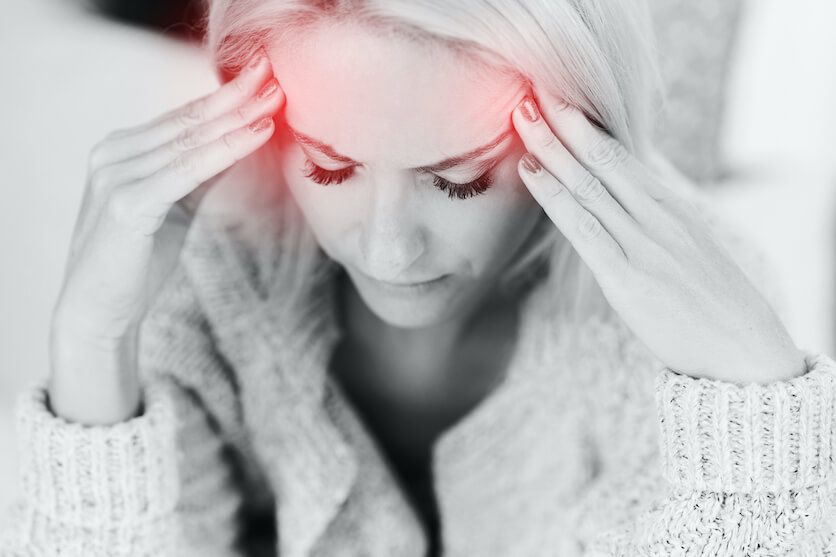
Those who regularly consume caffeine and suddenly stop will likely experience caffeine withdrawal headaches (which can start within 24 hours after stopping). Caffeine, for some, can trigger migraines. Because of this, if you are sensitive to caffeine, we do not recommend drinking caffeinated drinks (including tea).
Best Teas For Headaches
We don’t have the medical expertise to provide advice or make recommendations on any specific use of tea or caffeine for headaches. Tea or caffeinated drinks should never replace appropriate medical care.
Keep in mind that the FDA recommends a daily caffeine intake of 400 mg or less. True teas (black, green, oolong, yellow, or white) contain up to 70 mg of caffeine per six-ounce cup.
What Tea Is Good For Headaches?
So, what is a good tea for headaches? We have provided a few below, which are based on evidence-based findings to contribute to helping headaches.
Just the mere act of sitting down and sipping a cup of tea, your body is going to relax, and a sense of well-being washes over your mind. Tension headaches caused by stress greatly benefit from a daily tea time.
1. Peppermint Tea
According to the National Center for Complementary and Integrative Health, there are benefits to be gained from peppermint tea for headaches. But just how does peppermint tea help headaches? While we don’t know the mechanism behind how peppermint works to help with headaches, the study briefly mentions its possible benefit for tension headaches.
The National Library of Medicine published an article (Peppermint oil in the acute treatment of tension-type headache) states that peppermint “targets headache pathophysiology in multiple ways.”
2. Feverfew Tea
A research article from Modern Chemistry & Applications notes that using wild chamomile (also known as feverfew) may be justified to treat and prevent migraine headaches. Two constituents in the plant (chamazulene, parthenolide) have anti-inflammatory benefits.
3. Ginger Tea
The National Library of Medicine put out an article (Comparison between the efficacy of ginger and sumatriptan in the ablative treatment of the common migraine) that states ginger was just as effective at treating migraines as sumatriptan (a drug used for migraines) and also had fewer side effects.
4. Rosemary Tea
Kerman University of Medical Sciences published a clinical trial study (Beneficial Effects of Rosmarinus Officinalis for Treatment of Opium Withdrawal Syndrome during Addiction Treatment Programs: A Clinical Trial) which states that rosemary was an effective treatment for headaches. So by proxy, we can assume that a cup of rosemary tea may help alleviate a headache.
5. Lavender and Black Tea Blend
The National Library of Medicine published a study (Lavender essential oil in the treatment of migraine headache: a placebo-controlled clinical trial) that mentions lavender as being an “effective and safe treatment” for migraines. Lavender’s aromatic properties, married with the higher caffeine content of black tea, provides a double-effectiveness to help headaches.
Benefits Of Tea For Headaches
The Journal of Headache and Pain published a research study (Caffeine in the management of patients with headache) which mentions just how beneficial caffeine is when it comes to headaches.
Several benefits were mentioned in the study on the role caffeine plays in relation to headaches. It helps:
- Increase gastric motility in migraine sufferers.
- Improve absorption of analgesics (aspirin, acetaminophen, etc.)
- Elevate our overall mood.
- Significantly enhance pain-relieving effects of analgesics (aspirin, acetaminophen, etc.)
- Tension headaches benefit with 130 mg of caffeine plus an analgesic.
- Migraine headaches benefit with 100 mg or less of caffeine and an analgesic.
Although caffeine has its merits, those with medical conditions (especially GERD) taking medications, or have a sensitivity to caffeine, should consult with their healthcare provider before consuming tea, tisanes, or caffeinated beverages.
Tea Recipes For Headaches
The National Headache Institute’s “Herbal Migraine Blend” is a tisane (herbal tea) for headaches for those who prefer a caffeine-free alternative. Their recipe includes feverfew, which we covered earlier as being a beneficial tea for headaches.
Headache Buster Blend
We also have a caffeinated tea blend to try when a headache strikes.
Ingredients:
- 2 cups of water
- 2 teaspoons of loose-leaf Genmaicha
- ⅛ teaspoon of dried rosemary
- ¼ teaspoon of ground ginger
Directions:
- Bring the water to a boil.
- Place the loose leaf tea and rosemary into a tea infuser.
- Drop the filled infuser into the water.
- Add the ground ginger to the water.
- Cover and allow it to steep for 5 minutes.
- Remove the infuser.
- Pour the tea into a teacup and enjoy!
A Cup Of Relief
So, now you’ve got the “goods” on a drug-free alternative to finding some relief from a throbbing headache. Tea offers so many other benefits, and when consumed in moderation, you not only carve out a few moments of peace in a busy day, but your body appreciates what tea does for it.

